
Oxford University delegation to champion nature at UN biodiversity conference
Launching today, the United Nations Conference of the Parties for Biodiversity (COP15) will convene governments from nearly 200 countries to agree to a new set of goals to tackle the biodiversity crisis over the next decade. A range of academics from the University of Oxford are attending to help ensure the new framework is ambitious enough to not only halt but also reverse the global decline in species. The conference takes place from 7 to 19 December in Montreal, Canada.
Time is running out to halt and reverse biodiversity loss – international cooperation and governance on biodiversity and nature has never been so urgent. Irreversible losses of species are occurring at a faster and faster rate. This long-awaited COP is expected to be a landmark ‘Paris moment’ for nature and a crucial turning point in the fight against biodiversity loss.
Audrey Wagner, Department of Biology.
Despite on-going efforts, biodiversity is rapidly deteriorating worldwide and this decline is projected to only worsen further with business-as-usual scenarios. The core aim of COP15 is to secure agreement for an updated global action plan for nature through the Convention on Biological Diversity post-2020 framework process. The framework sets out an ambitious plan to implement broad-based action to bring about a transformation in society’s relationship with biodiversity and to ensure that, by 2050, the shared vision of living in harmony with nature is fulfilled.
For the first time, the University of Oxford is sending a delegation to the biodiversity COP conference, co-organised by Audrey Wagner and Seth Thomas, both part of the Nature-based Solutions Initiative (NbSI) in Oxford’s Department of Biology. Due to the COVID-19 pandemic, there has not been a COP for biodiversity since 2018, making COP15 a particularly critical opportunity to halt destruction of the natural world. In addition, previous targets agreed at COP10 in Aichi, Japan, have not been met, placing even greater pressure to put in place the financial and political support needed for nature.
 Audrey Wagner. Image credit Audrey Wagner.
Audrey Wagner. Image credit Audrey Wagner.
Audrey Wagner, head of the Oxford COP15 delegation and Programme Coordinator at the NbSI, focuses her work on nature-based solutions for climate change mitigation, adaptation, and biodiversity loss. She said: ‘Nature will not be able to provide the ecosystem services we all need and want from it – carbon sequestration and climate regulation, clean water provisioning, clean air, food production, aesthetic value – unless it is biodiverse. Biodiversity is a fundamental property of healthy ecosystems that underpins the provisioning of ecosystem services upon which we all rely.’
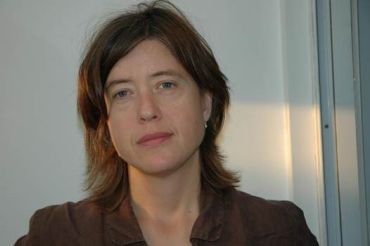 Professor Amy Bogaard. Image credit Mike Charles.
Professor Amy Bogaard. Image credit Mike Charles.
The Oxford delegates going to COP15 include:
Amy Bogaard is Professor of Neolithic and Bronze Age Archaeology and current head of the University of Oxford’s School of Archaeology. Her research focuses on the nature of early farming and its wider ecological and social consequences. She said: ‘The biodiversity crisis is a global problem and requires coordinated action at that scale. I am keen to gauge how archaeologists can help improve understanding of the causes of biodiversity change over time. This deep-time perspective can inform action to reverse biodiversity loss in the future.’
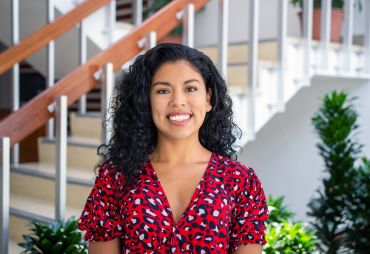 Melissa Felipe Cadillo. Image credit Giorgio Madueño.
Melissa Felipe Cadillo. Image credit Giorgio Madueño.
She said: ‘Attending the conference will give me first-hand knowledge of how decisions made at the COP level impact funding and policies for Latin American countries. I hope that the outcome of COP15 will be an actionable plan to stop land degradation and firm commitments from governments and the private sector to regulate and improve the practices of industries that are currently adding to the pressure on Amazon Forests.’
Aristide Kambale. Image credit: Josue Joe Makuta.
He said: ‘Healthy ecosystems regulate the global climate, facilitate the flow of nutrients, clean air, and water, maintain soil and its productivity, and provide all living things with food. Consequently, the state of the earth’s biodiversity will always dictate how and to which extent life on earth will be supported. I am very glad to be attending the COP15 Conference because this will help me to understand the various dimensions of the crisis, the human positionality in the system, and the multiple lenses through which we can tackle the situation on local, regional, national, and international levels.’
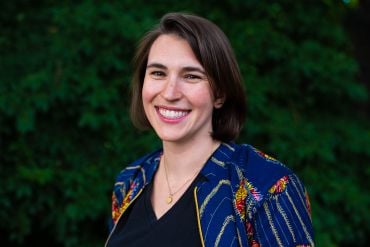 Jocelyn Perry. Image credit Jocelyn Perry and Elena Gittleman.
Jocelyn Perry. Image credit Jocelyn Perry and Elena Gittleman.
She said: ‘Though many think of 'nature' as existing only in rural areas, cities can be home to significant progress of the protection of biodiversity as well. The growth and sprawl of cities has only made their role in this protection more important. At COP15, I will advocating for measures that will strengthen contributions from cities and other subnational actors in the new global biodiversity framework. These will be highlighted during the Summit for Subnational Governments & Cities Taking Action for Biodiversity.’
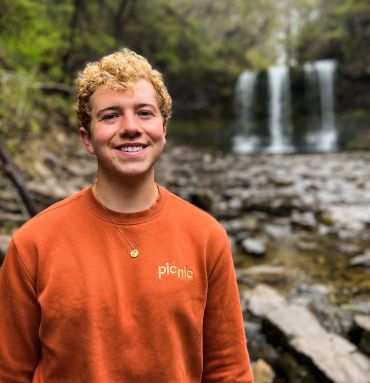 Seth Thomas. Image credit Seth Thomas.
Seth Thomas. Image credit Seth Thomas.
‘I hope that this COP15 can lead to an ambitious post-2020 framework for nature, but even more importantly I hope that we can create stronger enforcement mechanisms to hold members accountable to achieving these aims.’
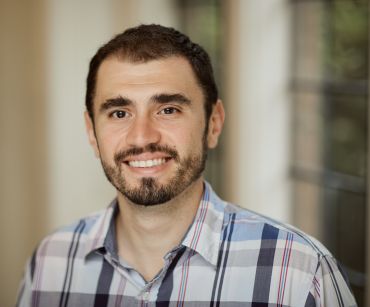 Dr Diogo Gaspar Verissimo. Image credit: Diogo Gaspar Verissimo.
Dr Diogo Gaspar Verissimo. Image credit: Diogo Gaspar Verissimo.
He said: ‘Managing biodiversity is a global issue so targets need to be set at the global level. By engaging political decision makers in this process, we hope to increase the likelihood of these ambitions being translated into action on the ground. I am hopeful that COP15 will result in a more robust monitoring framework that can help us track our progress, or lack of, and hold decision makers accountable when targets are not fulfilled.’
You can follow Oxford’s on-the-ground coverage at COP15 through the Conservation Optimism (@ConservOptimism) and Nature-based Solutions Initiative (@NatureBasedSols) Twitter channels. You can also follow the conference using the hashtag #COP15 on social media. All sessions at COP-15 will be streamed live at cbd.int/live and the main schedule is also available.
 New research shows high temperatures affect sex ratios at birth
New research shows high temperatures affect sex ratios at birth
 COVID-19 vaccination during pregnancy offers new insight into preeclampsia prevention
COVID-19 vaccination during pregnancy offers new insight into preeclampsia prevention
 Expert Comment: Should the UK relax clean energy targets?
Expert Comment: Should the UK relax clean energy targets?
 Existing hospital analysers offer a low-cost method to screen for fake vaccines
Existing hospital analysers offer a low-cost method to screen for fake vaccines